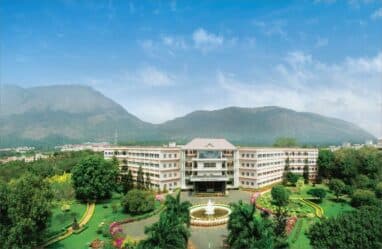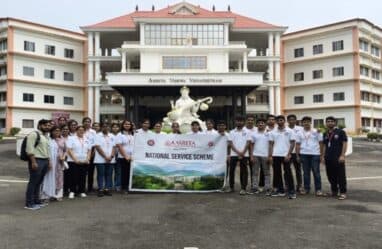Top 10 Pros and Cons of Pursuing a Career in Engineering after 12th

Top 10 Pros and Cons of Pursuing a Career in Engineering after 12th
Engineering is a field that has always attracted students after completing their 12th standard. It is one of the most sought-after fields of study in India, with millions of students enrolling in engineering courses every year. Also read about the Top 10 Best Government Jobs for 12th Pass Students in India.


Pros of Pursuing a Career in Engineering After 12th
First will see the list of all the Pros of Pursuing a Career in Engineering After 12th. The best college for pursuing Engineering in India is IIT Madras. Now Let’s have a look at the pros.
1. Job Security
It is a field that offers excellent job security. It is a profession that is always in demand, and engineers are needed in almost every industry, including manufacturing, construction, healthcare, and technology. This means that there is a high demand for engineers, which translates to job security.
2. High-Paying Jobs
Engineering is one of the highest-paying fields in the world. It is a profession that requires a lot of skills and knowledge, and engineers are paid well for their expertise. According to recent reports, the starting salary for an engineer in India is around Rs. 3-5 lakhs per annum, and it increases with experience. This is one of the best Pros of Pursuing a Career in Engineering After 12th.
3. Wide Range of Career Options
Engineering is a broad field with several specializations, including computer science, electrical, mechanical, civil, and chemical engineering. This means that there are many career options available to engineering graduates. Students can choose a specialization based on their interests and career goals.

4. Opportunities for Innovation
Engineers are always at the forefront of innovation. They are responsible for creating new products, processes, and technologies that can change the world. This means that engineers have the opportunity to work on exciting projects that can have a significant impact on society.

6. Job Satisfaction
Engineering is a profession that offers a high level of job satisfaction. Engineers have the opportunity to work on challenging projects, solve complex problems, and create innovative solutions. This means that engineers can take pride in their work and feel a sense of fulfilment in their careers.

7. Skills Development
Engineering is a profession that requires a lot of skills and knowledge. Engineers are trained in critical thinking, problem-solving, and analytical skills, which are valuable in almost every industry. This means that engineering graduates have a competitive advantage in the job market and can continue to develop their skills throughout their careers.
8. Positive Impact on Society
Engineering is a profession that can have a positive impact on society. Engineers are responsible for creating products, processes, and technologies that can improve people’s lives. This means that engineers can contribute to society in a meaningful way and make a difference in the world.
9. Prestige
Engineering is a prestigious profession. It is a field that requires a lot of hard work and dedication, and engineers are respected for their expertise. This means that engineering graduates can enjoy a high level of respect and recognition in their careers. This is one of the best Pros of Pursuing a Career in Engineering After 12th.
10. Flexibility
Engineering is a flexible profession. Engineers can work in a variety of industries, including manufacturing, construction, healthcare, and technology. This means that engineers can choose a career path that suits their interests and career goals.


Cons of Pursuing a Career in Engineering After 12th
First will see the list of all the Cons of Pursuing a Career in Engineering After 12th. Let’s have a look.
1. Challenging Coursework
While the challenging coursework of engineering can also be a pro, it can also be a con for some students. The curriculum is often rigorous and demanding, requiring students to have a strong foundation in math and science.
This means that students who struggle with these subjects may find it challenging to keep up with the coursework, leading to stress and burnout. This is the most noted Cons of Pursuing a Career in Engineering After 12th.
2. Long Hours
Engineers often work long hours, especially when working on a project or meeting a deadline. This means that they may have to work late nights and weekends, which can affect their work-life balance. Additionally, some engineers may have to travel frequently, which can be tiring and disruptive to their personal life.
3. High-Stress Levels
Engineering is a high-stress profession, with engineers often working on complex projects that require a lot of attention to detail. This means that there is a lot of pressure to get things right, which can be stressful for some individuals. Additionally, engineers may have to work under tight deadlines, leading to even more stress.
4. Limited Creativity
While engineering does offer opportunities for innovation, some students may feel that the field is too rigid and structured. There may be limited opportunities for creativity and self-expression, as engineers are often required to work within specific guidelines and parameters.

6. Risk of Obsolescence
Technology is constantly evolving, and this means that some engineering skills may become obsolete over time. This means that engineers may have to continually update their skills and knowledge to stay relevant in the job market. This is the most noted Cons of Pursuing a Career in Engineering After 12th.
7. Cost of Education
Engineering education can be expensive, with tuition fees and other associated costs adding up quickly. This means that students may have to take out significant student loans to finance their education, leading to financial stress and burden.
8. Competitive Job Market
While engineering is a high-demand field, it is also a highly competitive job market. This means there may be limited job opportunities in certain areas or specializations, making it challenging for some graduates to find employment.
9. Limited Diversity
Engineering is a male-dominated field, with women and other underrepresented groups often facing barriers to entry. This means there may be limited diversity in the field, which can affect the workplace culture and opportunities for advancement. This is the most noted Cons of Pursuing a Career in Engineering After 12th.
10. Ethical Considerations
Engineering projects can have a significant impact on society, and engineers have a responsibility to consider the ethical implications of their work. This means that engineers may have to make difficult decisions and balance competing interests, which can be challenging and stressful.
Also, read B.tech. Agriculture vs B.Sc. Agriculture
Conclusion
Engineering is a field that offers many opportunities for personal and professional growth. It is a high-demand field with excellent job security, high salaries, and opportunities for innovation. In this article, we have talked about the Pros and Cons of Pursuing a Career in Engineering after 12th.
However, it is also a challenging field, with rigorous coursework, long hours, and high-stress levels. Students considering a career in engineering should weigh the pros and cons carefully and choose a specialization that aligns with their interests and career goals.
With the right skills, knowledge, and mindset, engineering can be a rewarding and fulfilling career.
Prakhar is a tech enthusiast with a robust background in machine learning and data science. His passion lies in converting intricate technical concepts into engaging content. During his free time, he immerses himself in reading, keeping abreast of the latest tech trends and global events, which nourishes his creativity and positions him at the forefront of innovation. Through his content, Prakhar aims to inspire others to embark on their own journeys while staying informed about the ever-evolving world of technology and beyond.






